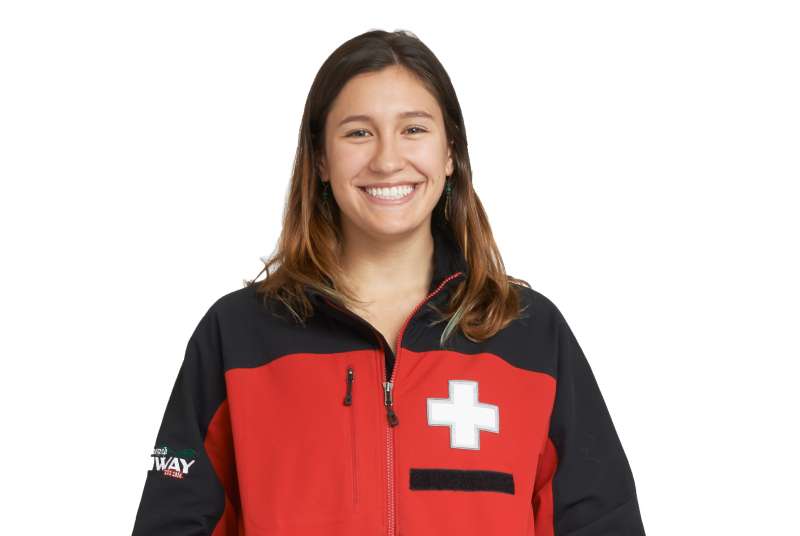
Carly Amon ’17
How does a New York City native become such an avid skier?
I started skiing on an annual family trip to Whistler when I was 2. I never had many opportunities to ski in New York, so the Skiway was one of the things that drew me to Dartmouth.
What’s it like to be in charge?
There’s a lot going on behind the scenes that you don’t necessarily see until you’re on the leadership side, whether it’s training shift supervisors, organizing meetings or ordering new equipment. Besides patrolling we’re maintaining the Skiway as a safe environment for skiers and snowboarders. Organizing 60 students who work with other community volunteers takes a ton of coordination. I’ve been working to figure out how to best act as a leader with people who are my friends and peers.
What kind of training do patrollers go through?
Each spring an incoming class of 15 freshmen takes an 80-hour course to become outdoor emergency care certified. All the other patrollers teach them, and the course involves two midterm exams and a final. We also have a Dartmouth Ski Patrol-specific test patrollers must pass sophomore year before they are considered “vested” and can respond to a medical call on their own.
What constitutes a typical shift at the Skiway?
The first thing you do when you arrive is assess the conditions: how the snow is, whether any medical calls have been taken or if there are any events happening that day. Then you get up on the mountain and take care of tasks such as answering calls at the top shack and patrolling runs on the Skiway. The most common medical calls we get are for musculoskeletal and head injuries.
Can you tell us about a memorable day?
We did an extensive CPR training scenario last winter that included transitioning a “patient” from the snow to the sled and into the aid room, all while someone was giving them chest compressions and rescue breaths. It’s fun as we expand on our rescue abilities, but it is always challenging to work in a group in such an intense situation.










